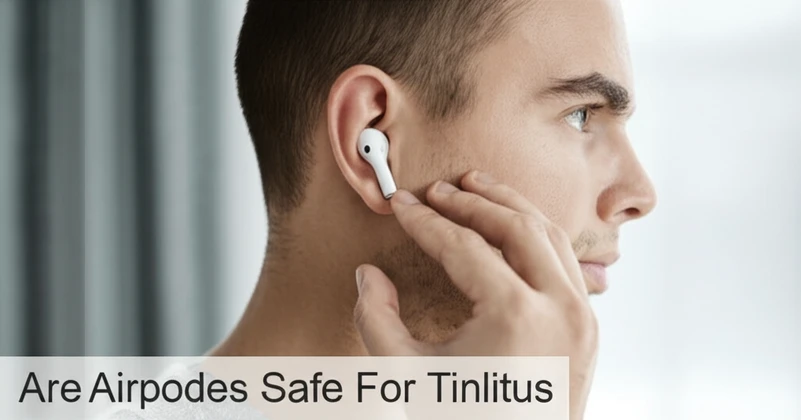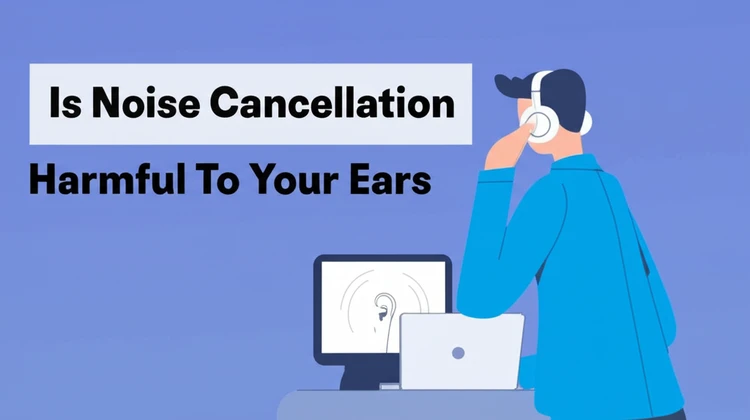
Are AirPods safe for tinnitus? This is a common question among those experiencing the phantom noises of this condition. This article aims to provide evidence-based information about the relationship between AirPods and tinnitus, offering practical advice for safe listening practices and exploring alternative management strategies.
This article does not constitute medical advice, and readers experiencing tinnitus should consult with a qualified audiologist or healthcare professional for personalized guidance.
Understanding Tinnitus
Tinnitus is the perception of a sound in one or both ears without an external source. This phantom noise can manifest as ringing, buzzing, hissing, clicking, or whooshing, and it can vary in intensity and pitch. Tinnitus can be temporary or chronic, and its impact on an individual’s quality of life can range from mild annoyance to severe distress.
Millions of people worldwide experience tinnitus, making it a significant health concern.
Common Triggers and Underlying Causes of Tinnitus
While the exact mechanisms of tinnitus are still being researched, several factors are known to trigger or exacerbate the condition:
Noise Exposure
Exposure to loud noises, such as concerts, industrial machinery, or even prolonged use of personal listening devices at high volumes, can damage the delicate hair cells in the inner ear. This damage can disrupt the normal transmission of auditory signals, leading to tinnitus. The cumulative effect of noise exposure over time significantly increases the risk of developing noise-induced tinnitus.
Stress and Fatigue
Stress, anxiety, and fatigue can worsen tinnitus symptoms.
These factors can heighten the brain’s sensitivity to auditory signals, making the perception of tinnitus more prominent. Managing stress through techniques like mindfulness, exercise, and adequate sleep can be crucial for tinnitus management.
Ear Conditions and Medical Factors
Various ear conditions, such as earwax buildup, ear infections, Meniere’s disease, and otosclerosis, can contribute to tinnitus. Other medical factors like temporomandibular joint (TMJ) disorders, head injuries, and certain medications can also trigger or worsen tinnitus.
AirPods and Tinnitus: How They Interact
AirPods, like other in-ear headphones, deliver sound directly into the ear canal.
This proximity, combined with certain features, raises questions about their potential impact on tinnitus.
AirPod Features and Their Potential Impact on Tinnitus
Proximity to the Ear Canal
AirPods’ close proximity to the eardrum can amplify sound delivery, potentially increasing the risk of exposure to high decibel levels. This can be especially concerning for individuals with tinnitus, as amplified sounds can exacerbate symptoms.
Active Noise Cancellation (ANC)
Active Noise Cancellation (ANC) technology in AirPods Pro and AirPods Max reduces background noise, allowing users to listen at lower volumes in noisy environments. This can be beneficial for protecting hearing.
However, some individuals with tinnitus report increased awareness of their tinnitus in quieter settings when using ANC. This may be due to the reduction of external sounds, making the internal sounds of tinnitus more noticeable. For more information, see noise cancellation and its effects on tinnitus.
Can AirPods Cause or Worsen Tinnitus?
AirPods themselves do not directly cause tinnitus.
However, improper use, primarily listening at high volumes for extended periods, can contribute to the development or worsening of tinnitus symptoms. The crucial factor is sound level and duration of exposure.
Volume Levels: The Key Factor
The primary concern with AirPods and tinnitus is the potential for high volume listening. Sustained exposure to sounds above 85 decibels can damage the hair cells in the inner ear, potentially leading to or worsening tinnitus.
It’s crucial to keep the volume at a safe level, generally recommended to be below 70% of the device’s maximum volume.
Duration of Listening Sessions
Prolonged use of AirPods without breaks can strain the auditory system. Following safe listening guidelines, such as the 60/60 rule (listening at 60% of maximum volume for no more than 60 minutes at a time), can help protect hearing health.
Tips for Safe AirPod Use with Tinnitus
While AirPods don’t directly cause tinnitus, responsible usage is crucial for minimizing potential risks, especially for those already experiencing symptoms. Here are some essential tips:
Monitor and Manage Volume Levels
Maintain listening volumes at a safe level, generally recommended to be below 70% of your device’s maximum output.
Utilize the volume limiter features available on smartphones and other devices. Regularly monitor your listening habits and be mindful of the volume, especially in noisy environments.
Take Frequent Listening Breaks
Give your ears regular breaks from AirPod use. Following the 60/60 rule is a good starting point: listen at 60% volume for a maximum of 60 minutes, followed by a break of at least 10-15 minutes.
This allows the auditory system to recover and reduces the risk of noise-induced hearing damage.
Utilize Noise-Cancelling Features Strategically
If you use AirPods Pro or Max, take advantage of ANC in noisy environments. This reduces the need to increase the volume to overcome background noise, minimizing the risk of harmful sound exposure. However, be mindful of prolonged ANC use in quiet settings, as it might increase awareness of tinnitus in some individuals. For more on the safety of noise cancellation, see noise cancellation.
Alternative Listening Options
For individuals with tinnitus who find AirPods uncomfortable or experience heightened symptom awareness while using them, alternative listening devices may be beneficial.
These options can provide a different auditory experience and potentially alleviate discomfort:
Over-Ear Headphones
Over-ear headphones, especially those with passive noise isolation, distribute sound pressure over a larger area, potentially reducing the focused pressure in the ear canal. This can be more comfortable for some tinnitus sufferers.
Bone Conduction Headphones
Bone conduction headphones transmit sound through vibrations in the bones of the skull, bypassing the eardrum.
This method of sound delivery can be a comfortable alternative for individuals sensitive to in-ear devices or those with certain types of hearing loss.
Seeking Professional Guidance for Tinnitus Management
If you are experiencing tinnitus, consulting with a qualified audiologist or healthcare professional is crucial for a comprehensive evaluation and personalized management plan. They can identify underlying causes, assess the severity of your tinnitus, and recommend appropriate treatment options.
Conclusion
Are AirPods safe for tinnitus? The answer is nuanced.
AirPods themselves do not cause tinnitus, but irresponsible usage, particularly listening at high volumes for extended periods, can exacerbate symptoms or contribute to noise-induced hearing loss, which can be a trigger for tinnitus. By adhering to safe listening practices, utilizing features like ANC strategically, and seeking professional guidance when needed, individuals with tinnitus can safely enjoy the convenience and quality of AirPods while minimizing potential risks to their hearing health. Prioritizing mindful listening habits is essential for protecting your hearing and managing tinnitus effectively.






